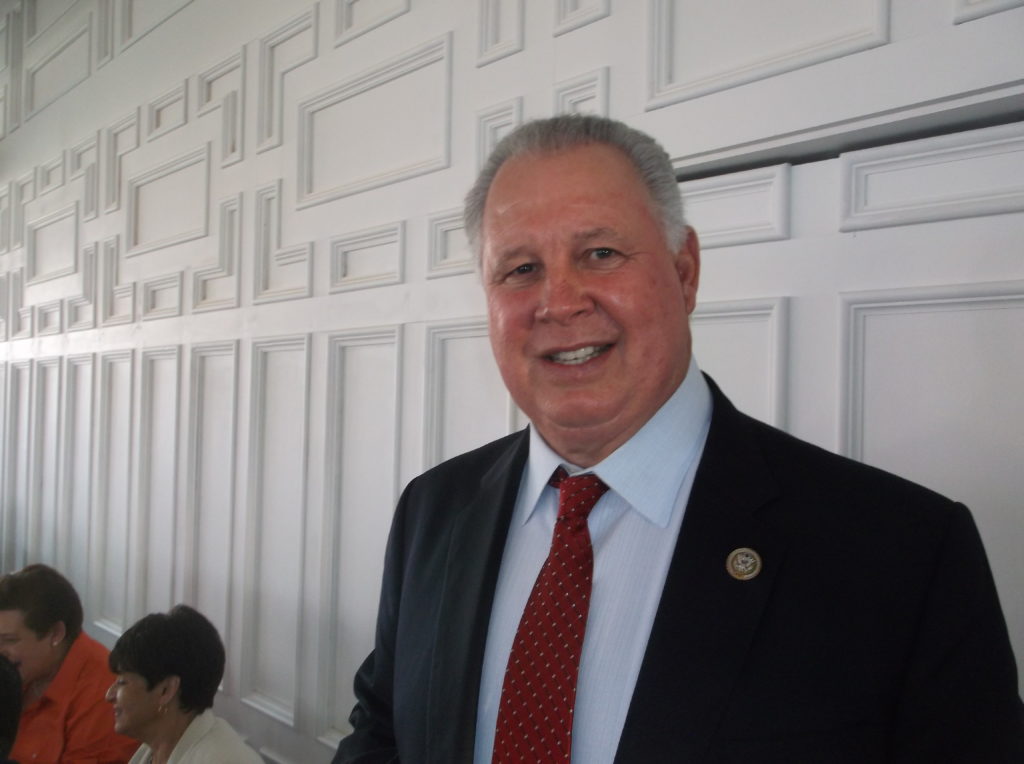The Climate Crisis is Already Here: What is Congress Going to Do About It?

By ALBIO SIRES
The reality and existence of climate change and its impact on our lives is not up for debate. Neither is the assessment that human activity, and our reliance on fossil fuels, has led to the crossroads we now face. The “once in a century” hurricanes, flooding events, droughts, and heat waves are occurring far more often. Their frequency and severity are exacerbated by climate change. These extreme weather events have become seasonal occurrences for many Americans across the country, events to which we have grown wearily accustomed. Hurricane Ida is only the latest example of a near-yearly phenomenon for New Jersey communities, and recent reports do not anticipate a significant change in this trend.
The National Oceanic and Atmospheric Administration (NOAA) began tracking billion-dollar weather and climate disasters in 1980, and since then the US has experienced 298 weather disasters where the total costs reached or exceeded $1 billion. The US has spent over $1.97 trillion combined in the aftermath of these disasters, and these events will continue to occur with alarming regularity, and at great cost to all who live in the United States. This is not a reality that should be acceptable to a single one of us, and it is upon each of us, particularly our private and public-sector leaders, to make the necessary decisions that both protect our communities now, and preserve our planet and its resources for future generations.
New Jersey has experienced a steady rise in extreme weather events over the last decade, following the national trend. Last year, New Jersey recorded its second-hottest year on record, with July 2020 recorded as the hottest July in 126 years of tracking this data, and eight of the past ten years have been among the warmest years in New Jersey according to Rutgers University and the Office of the New Jersey State Climatologist. These alarming trends demand a federal response that meets the urgency of the moment.
Recent extreme weather events make even more clear the need for adequate investments and action by Congress. That is why I voted in favor of the Build Back Better Act in November, and strongly urge the Senate to vote on this legislation promptly. These investments are urgently needed to create and sustain more resilient communities and reduce the greatest human-led impacts of the climate crisis.
Central to transforming the national response to the climate crisis is establishing incentives for transitioning to clean energy and electric vehicles. The Build Back Better Act would incentivize the transition to electric vehicle use by providing a tax credit for the purchase of electric vehicles. The bill would also invest in electric vehicle infrastructure, including an expanded charging station network, and prioritize replacing heavy-duty vehicles like school buses and garbage trucks with zero-emission vehicles. If passed, this legislation would also provide funding for the development of community-led local projects aimed at implementing solutions to pollution reduction, climate resiliency, and mitigation. In addition, the Build Back Better Act would permanently withdraw the Arctic National Wildlife Refuge and federal waters in the Atlantic, Gulf, and Pacific from oil gas drilling. Cumulatively, this legislation is the most direct and expansive action on climate ever taken by Congress, and it is beyond time that such a first step be enacted.
Despite the partisan environment that defines our current time, the effects of the climate crisis are felt by everyone, and each of us, directly or indirectly, shares its burdens. We have borne witness to the consequences of federal inaction on addressing climate change, and I am hopeful that the Build Back Better Act is just the starting point from where we must continue to fight this ongoing global challenge.
Albio Sires is the Congressman from the 8th District.





